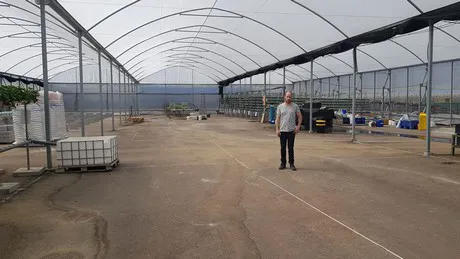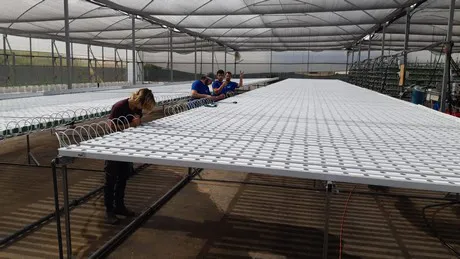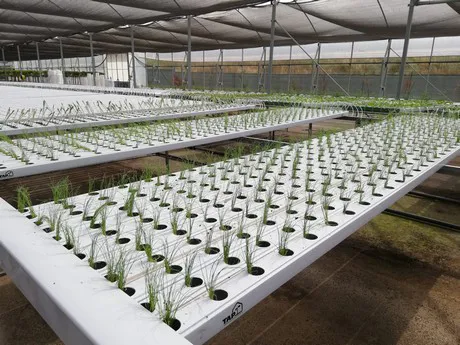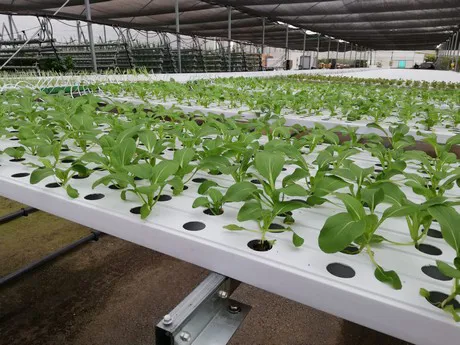The Hanita Kibbutz in Northern Israel may be more than 80 years old, but their cultivation methods are certainly not outdated. They have chosen to use a TAPKIT instead of a low-tech greenhouse. TAPKIT is a complete, relatively low-cost hydroponic production system. Teshuva Agricultural Products (TAP) develop and supply this system.
"We were looking for a high yield production facility," says Hanita's Max Kipiatkov. "It had to be independent of soil types and allow for growing all year round. This needed to be done in an advanced greenhouse which can be operated by just one employee."

"I am acquainted with TAP, its reputation, and its experience in hydroponics. This knowledge simplified our decision regarding the supplier of choice for the project. TAP provided me with the growing protocols and all the information needed to operate the TAPKIT.”
Three main advantages
“In less than two weeks from the signing of the contract, the system was already operational. This week marks about six weeks since the inception of the project and we are now getting ready to harvest the first crop," Max says. He says cultivating products in the TAPKIT has three main advantages when it comes to production and consumer prices. "We can grow all year around with continuous supply. This is a huge advantage," he says.
"The produce is delivered to several local restaurants as well as a couple of 'mom & pop' shops in the neighborhood. Our customers rely on us to supply between five and ten products. These items include lettuce, pak choi, basil, coriander, and watercress. Getting it fresh from the greenhouse, within an hour from harvesting is invaluable."

Kipiatkov says pest control is also much easier since the TAPKIT is lifted off the ground. "The plants are enclosed in an insect-mesh protected greenhouse. The pressure to deal with insects is significantly lower compared to a low-tech greenhouse. Controlling pests and diseases is easier and much more efficient than in traditional operation. This means the product grown is cleaner and healthier."
Low cost
The third advantage is the low operating costs. "One person runs the entire operation," Max explains. "The daily routine includes all the various tasks, each on a small scale. It starts with the harvesting of a few gullies of the crop."

"Next, sapling plants are transplanted into these gullies. These young plants are cultivated in the nursery section - an easy task considering that the gullies are at waist level. Seeding of the seedling trays is done sitting on a bench. The water tanks need to be filled, and the fertilization formula must be balanced. And that is it. After the TAPKIT has been cleaned up, we can call it a day."
Max estimates the TAPKIT will pay for itself in less than two years. "This model of micro-farming used no middle-man. There are no distributors, dealers, or brokers involved. Therefore our customers are paying a little less than what they normally would for their produce. We, as growers, are also getting a much higher price than if regular marketing/distribution was involved."

Produce sold locally
"My main target group for our end product is the nearby market," continues Kipiatkov. "It is no more than 15 minutes' drive away. We provide products to small communities, local restaurants, the farmer's market, nursing homes, and the local school."
"We grow products in the TAPKIT which our customers demand. It is easy to change our assortment. Right now, we are growing chives, pak choi, basil, and several lettuce varieties. We can cultivate everything which has a three-four week growing cycle from plantlets to harvest. This includes various leafy and baby leaf vegetables and fresh herbs.
For more information:
Teshuva Agricultural Projects
Tel: +972-9-8940507
Tel: +972-50-7922579
Tel: +1-201-5803003
Email: office@taprojects.com
www.taprojects.com
